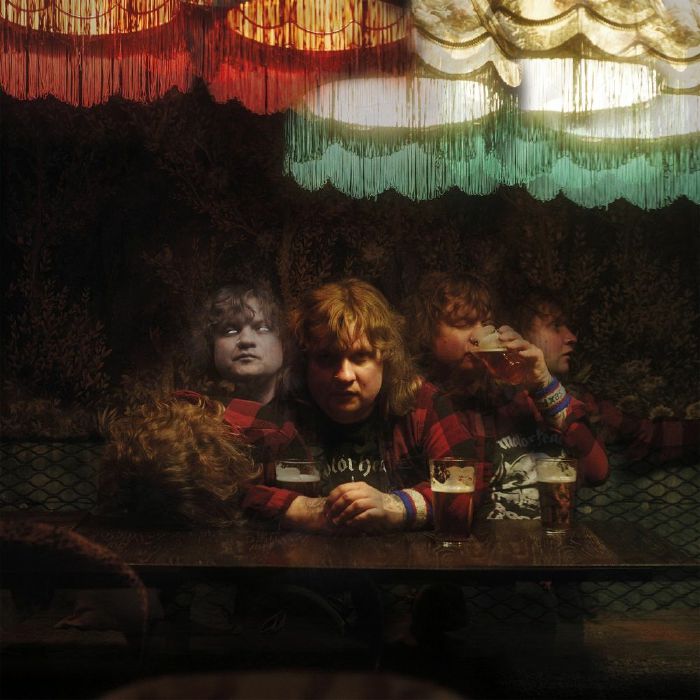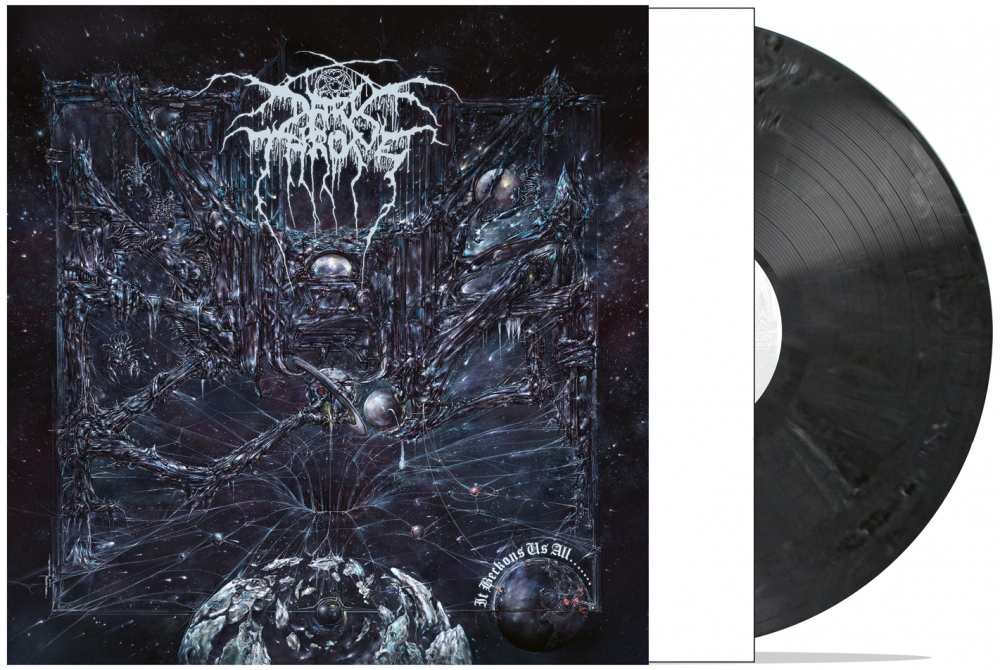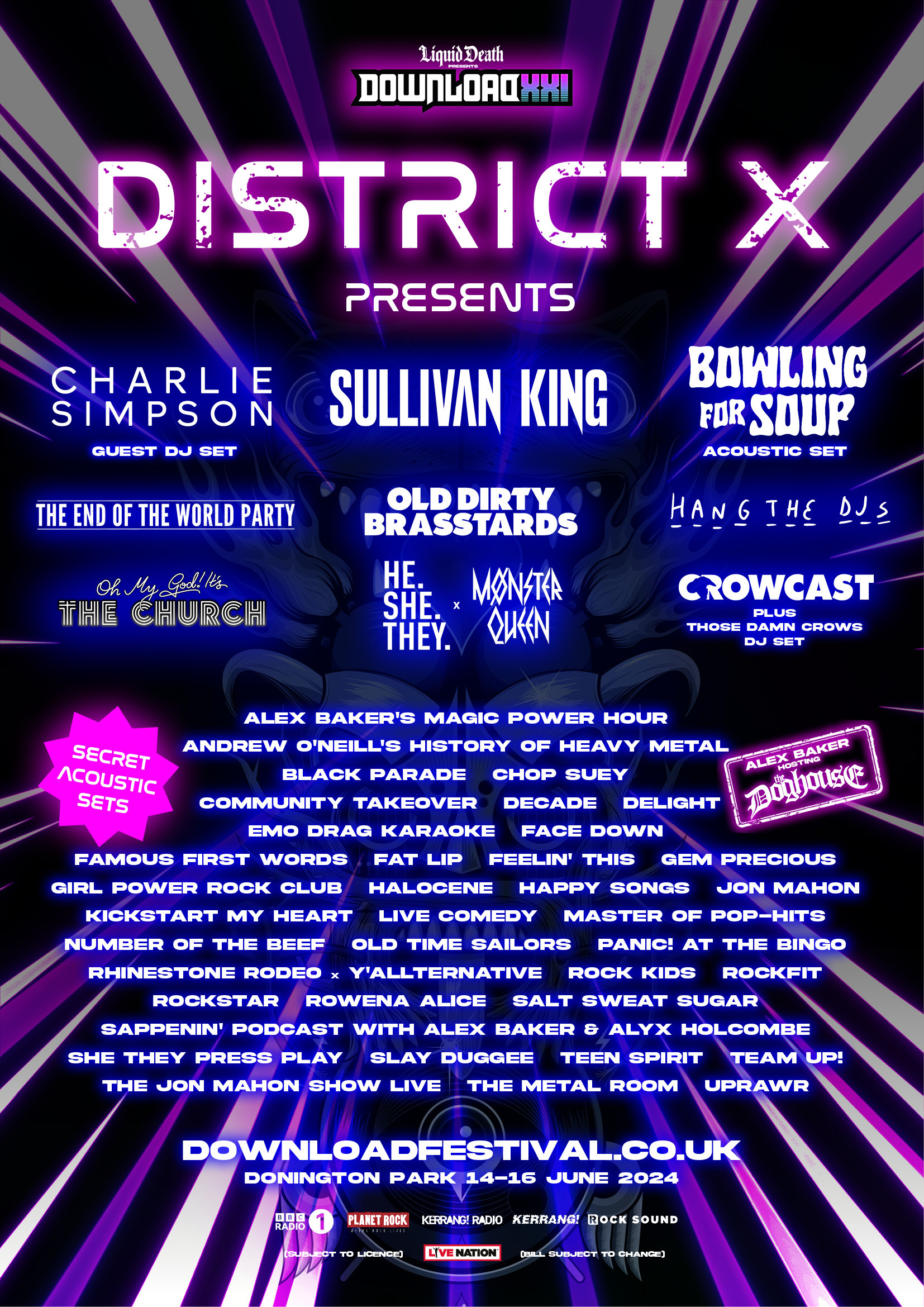Ronnie Baker Brooks’ album, ‘times have changed’ is unequivocally one of the best records I have heard this year. It is an album that is suffused with the spirit of the blues, a record that draws upon a life-time’s experience and finds joy there. A varied mix of covers and original tracks, the album has energy, passion and great spirit and it’s quite impossible to listen to the album and not feel your spirits being lifted by the impeccable musicianship and wonderful sense of community that is invested in every track. From a raucous rendition of ‘Twine Time’ (a song Ronnie had not originally intended for the record) through to the gentle closing number, ‘when I was we’, ‘times have changed’ is a record packed full of timeless tunes and it will be as relevant and as wonderful in ten years as it is today. An opportunity to talk to Ronnie, therefore, was one I eagerly grasped.
Deeply passionate about his music and rightly proud of his new album, Ronnie talked in depth about the various contributors who helped him make the record as well as his own work as a guitarist and the motivation behind playing the blues. Times may have changed, but music will always be there to see us through the tough times…
Hi is that Ronnie?
This is Ronnie.
Hi this is Phil, I’m calling from the English website SonicAbuse…
Yeah, how are you doing Phil?
I’m good thanks. Thank you so much for agreeing to talk with me.
Thank you for having me, Phil.
The first thing, and I’m sure you get this a lot, but listening to the album was such a pleasure for me because it’s so passionate, energetic and full of life…
Well thank you Phil. I’m glad you enjoyed it, I had a ball making it!
I read an interview with Eric Clapton, who was talking about his motivation for making the blues, and he said something along the lines that, for him, the blues was about making something joyful out of sorrow and I wondered about your motivation and to what extent it was similar?
Well, I love to see people happy. If I can make people happy playing music, it makes me even happier. I believe that the blues is a healer. It makes me feel better. It does help you get over a situation – it’s like you’re facing your fears, almost. It’s a way of opening up your heart and allowing people in and it connects you with them because they may be going through the same thing. Once you find out that you’re not alone, it becomes a healing process and that’s it – just making people feel better. Letting them forget about their problems or whatever they’re going through for a couple of hours or however long you’re playing. That’s the blues for me. It’s a healer.
One of the tracks that stood out for me was the cover of ‘Twine time’ where you can hear the musicians in the studio having an amazing time just playing that song…
We were! We were. That was one of the funnest tracks on the record. That had a spur-of-the-moment kinda thing because we had a plan of certain songs that we were recording but we needed an instrumental. Steve Jordan was like “Hey man, we need an instrumental!” And I was thinking Freddie King… immediately I was thinking Freddie King or Gatemouth Brown or someone like that and he was like “nah, let’s get someone a little broader so that everyone, and not just guitar freaks or guitar geeks, can dig!” So I said “OK…” and he said “Twine time!” and I thought he was kidding me because I knew Alvin Cash before he passed away and Alvin would come out to this club, this little joint here in Chicago called Artis’ and he would play that song and all the musicians were like “Aw man, he’s gonna play Twine Time?!” but everyone in the audience would get up and party! And I was one of the musicians like “OK, he’s playing Twine Time, all right!” but I didn’t realise that Steve had this vision of how much of a party song this song is. And I’m starting to see the effect when I play it today, I mean wow! People really, really dig the song and that’s how that came about. All the other songs were picked – basically we had a plan – but ‘Twine Time’ was a spur-of-the-moment thing and once we had it done I said “man, I’ve got to have my dad on this record!” I mean, he was probably in the studio when they cut it, and it turned out to be a great, fun track to do.
The other thing that really surprised me about the record was, when I listened to it, I had no idea that you’d really pushed to go back to basics, so what you hear on that record is you, your guitar, your amp but no wall of FX and processors, and yet when you listen it sounds massive! So what was your approach to recording – how did you get it to sound so huge?
Well, I trusted Steve, man. The first thing I knew was that I wanted to work with Steve, it was always a dream of mine to work with Steve. The first thing, he was on the David Letterman show here in America and they had a band called the World’s Most Dangerous Band and I was always fascinated by those guys and it was his idea, once we decided to work together, to strip me down, take away all my guitar pedals and just plug straight into an amp with a Gibson guitar. And I was like “wait a minute man, wait a minute!” [laughs] But I trusted him and now, when I look back at it, it’s like wow!
But when we were stuck doing the tracks, it was like I felt what he was talking about because everything else was space. Everything had a frequency, everything had a place in the track and you could hear things clearer, you could feel it. When I bend on the string you can hear all of that now, just a sound or a… you know. You could feel the soul in it. I was a little nervous at first, but he was like “man! Leave your pedal board in the bus!” [laughs] So, I plugged straight into the amp and I love it. I love that I did that. I had a frined of mine here in America who told me… one time I sat in with a group and they didn’t have any pedals and I just plugged straight into the amp and my friend told me “man, you need to play like that Ronnie. You need to put that pedal board up and go straight into an amp.” But I was always trying… because I had a three-piece band, I was trying to use the pedals for different colours so the people wouldn’t get tired of the guitar with a three piece band because I didn’t have any other instrument that could solo in the songs, so I used the pedals to get different colours and sounds to keep people interested whereas on this record, I had all these great musicians, Willie Weeks, Charles Hodges, Teenie Hodges, Michael Toles and this great horn section and this great string section… So there was room for everything without me playing with the pedals, so it was great and I’m glad I did, I know I’m a better player from it.
It really makes you dig in, I guess, because pedals are great but there’s that temptation that you can use them to avoid doing more…
My dad always told me, your fingers are your fingerprint. When you play a guitar, especially when you’re playing straight into an amp, or just with an acoustic, the tone you get is your fingerprint. With the pedals and all of that, sometimes that tends to take away your fingerprint. It does give you some added possibilities, but it also limits you from your uniqueness sometimes, unless you come up with a new sound or a new way of playing or a new effect or whatever. But if you just strip it down -just you and a guitar you’ve got a fingerprint there. You’ve got your own sound that you’re going to produce and Steve knew that and I trusted him… and I’m glad I did.
The record is a blues record, but there are a lot of other influences on there, including rap and funk. It’s such a varied record, which I think adds to its appeal, but how did you think about fitting it all together so that the record itself would have the flow that it does?
Well, it goes back to Steve. My records that I did before Steve… and it’s a similar philosophy… It’s like building a house, to me. You come out with something and it gets their attention and then you get that flow and I like to leave them with something that they can think about or feel, with a bit more heart – that’s why we ended up with ‘When I was we’ – it’s a slow ballad and very… like a love song almost. It’s an intimate song.
It was the same kind of philosophy with Steve. He wanted to come out with something that people knew, with ‘show me’, which had some fire and then leave it with the soul and intimacy. That’s the philosophy. When we were picking the songs, all the songs I had at that time were ‘times have changed’ and ‘when I was we’ and I had written those for my previous records. This was the first record where I did cover songs because on my previous records I wrote every song; and he picked the originals I wrote. One with Keb Mo, one with Big Head Todd, and the other ones I wrote myself.
The cover songs, he asked me what songs I would like to cover if I wanted to cover a song and ‘old love’ was the first song I said because I love that song. I love Eric Clapton, I love Robert Cray and I thought that was a great union of those two together in a room, writing. That’s a beautiful, beautiful song and what made me really like it was when I heard my mum listen to the song and she said she loved it and that made me want to play it live even more. And then the second song was ‘give me your love’ because Steve was like “what about some songs you’d like to do that aren’t necessarily blues?” – that had a broader appeal. I love Curtis Mayfield and ‘Give me your love’ was second. Then, he knew that I love Joe Tex, I grew up listening to Joe with ‘Skinny legs’, ‘I got you’ and ‘show me’ and all that stuff, so we ended up doing ‘show me’. ‘Give the baby…’ was the second part of the session. We started in Memphis at Royal studios with the first part and then, when we did the second part, we went to Nashville and Blackbird. And that was one of the songs that we ended up doing and my whole thing with that track was, at first I was trying to play and sing the song, but the riff I can’t play it and sing it at the same time and when Big Head Todd came in, he started jamming on the rhythm and I was free and I said “Oh, OK, now I can just concentrate on singing!” and that happened in one take man. One take. We did no overdubbing, nothing. Everything was just right there at the spur of the moment, right there when we started to groove. So that’s how we ended up with these songs and Steve kind of… he was the one who did the sequencing. He asked me my opinion and I loved it and that’s how we ended up with it.
One of the things that attracted me to the blues was the sense of community that seems to be such a big part of it and also such a big part of your record – how did you go about finding the guests to play on the record?
Well, I’ve worked with Big Head Todd a lot form before the record. I went on tour with him on two separate tours and I knew Todd from back in 95/96. We were around the same age and they inspired me back then to do my own records and to write. My father always said: “always write your songs.” He taught me and my brother that at a very early age and when I met Todd he had that same philosophy and we hit it off immediately and were drawn together, so it was a natural fit to get Todd on the record. Bobby Bland had been a friend of my dad’s for over fifty years. They met back in the early fifties or late fifties and I remember Wayne Bennett, his guitar player, coming over to the house to jam with my dad and, during their breaks, Wayne Bennett taught me how to play ‘hide away’, so we’ve been affiliated with Bobby Bland for many years and, of course, he knew Steve Jordan, his son Rod Bland knew Steve and I know Rod as well, so that just happened as well. Steve Cropper, that came through because of Steve Jordan’s relationship from them two playing in the Blues Brothers band together and making great music for years and we were in Nashville and he called him and he said he’d be there. Felix Cavaliere, same thing, he knew Steve and he said “hey man, you’re doing something? You’re doing it with Ronnie? I’d be glad!” He came down and, really, Steve was the facilitator. When they heard his name involved and, of course I had something to do with it, but Steve had a lot to do with it and once they heard the tracks they just jumped in there and I wanted to jump in there with them.
I didn’t want to feel like I was hanging on, I wanted to contribute and it was very, very difficult with Bobby Bland because… How do you hang in there with Bobby Bland? What do you do? I just tried to contribute something… my soul and my feeling and I think that’s where we can relate – that’s the blues, all of us have been through that and that’s what I connected to, as opposed to trying to sing or do something that I’m not naturally doing singing wise. I just jumped into the soul of the song and tried to connect with him.
And that’s how the guests came about. Eddie Willis was a guest as well. We were down in Memphis and he just came through. Steve called him and he came through and he was honoured and that was my first time meeting him and it just kind of fell in place. Lee Roy Parnell was ion Nashville – I ran into him at Gibson guitars and I was like “Hey man, I’m at the studio, why don’t you come on by?” And he ended up playing on the record. It just fell in place like that.
One of the big centrepieces of the record is ‘Times have changed’ with Al Kapone and you created that bridge between blues and hip hop which it is also very reflective – that’s obviously a very important song to you because it became the title of the album as well…
Yeah, and it’s a timeless subject because times are always changing. I wrote that song years ago and I recorded it acoustically for one of my previous records and sent it to Steve and that was one of the first songs that he really wanted to do. I didn’t, I wasn’t thinking about… I didn’t know what his orchestration was going to be like with the band. I thought he might have wanted me to do it again acoustically but he was thinking with the band and eventually getting Al Kapone on it and having a string section and turning it into this.. oh man, when I heard the strings on it I was like “Oh my god!” I didn’t even think of that it just bought it out even more and it just puts you in that dream that you can visually follow it and, you know, it’s a timeless subject, times are always changing. But then again some things remain the same and it turned out to be a great idea.
I’m aware that you have little time, so my last question is whether there’s any chance we’ll see you on a UK tour?
I believe. I hope so. I hope so. That was part of getting with Mascot, because they have a strong presence over there, and it would be great to get over there and bring these songs to audiences over there.











Leave a Reply